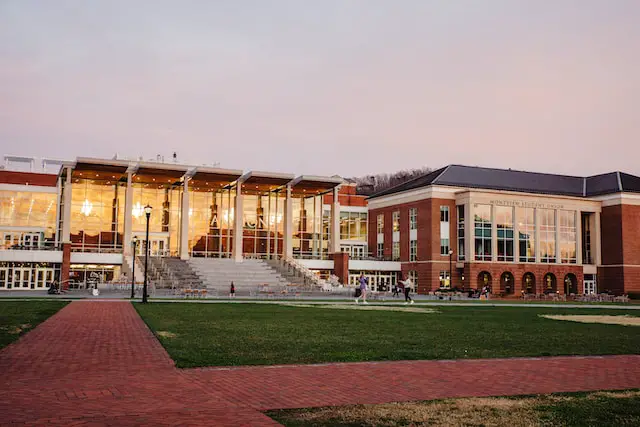King’s College is a private liberal arts college located in Wilkes-Barre, Pennsylvania. Founded in 1946, King’s College offers undergraduate and graduate programs in a variety of fields, including business, education, and health sciences. In this article, we will discuss the pros and cons of attending King’s College.

Pros:
- Academic excellence: King’s College is known for its strong academic programs, particularly in the health sciences. The college is home to several highly regarded programs, including nursing, physician assistant studies, and health care administration. In addition, King’s College offers a variety of other undergraduate and graduate programs in areas such as business, education, and the liberal arts.
- Small class sizes: One of the advantages of attending a small, private college like King’s College is the small class sizes. With an average class size of 17 students, King’s College offers students the opportunity to receive individualized attention from their professors and to develop close relationships with their peers.
- Personalized attention: King’s College is committed to providing its students with personalized attention and support. The college offers a variety of resources and services to help students succeed academically and personally, including academic advising, tutoring, counseling, and career services.
- Location: Wilkes-Barre is a small city located in northeastern Pennsylvania, with easy access to major cities such as Philadelphia and New York City. The area offers a variety of cultural and recreational opportunities, including museums, theaters, and outdoor activities such as hiking and skiing.
- Student life: King’s College offers a variety of opportunities for students to get involved on campus and to connect with their peers. The college has over 60 student organizations, including clubs for sports, arts, academics, and social justice issues. In addition, King’s College has a strong athletic program, with teams competing in NCAA Division III.
- Financial aid: King’s College is committed to making a college education affordable for its students. The college offers a variety of financial aid options, including scholarships, grants, loans, and work-study programs.
Cons:
- Cost: One of the biggest drawbacks of attending a private college like King’s College is the cost. Tuition and fees can be significantly higher than at public universities, and students may need to take on more debt to finance their education.
- Limited course offerings: While King’s College offers a variety of strong programs in the health sciences and other fields, the college may not offer as many course options as larger universities. This can make it challenging for students to find the courses they need to fulfill their requirements or to explore their interests.
- Limited diversity: King’s College has a relatively homogenous student body, with a majority of students identifying as white and from Pennsylvania. This may limit opportunities for students to interact with people from diverse backgrounds and to learn from different perspectives.
- Limited research opportunities: While King’s College offers opportunities for students to conduct research, the college may not have the same level of resources as larger research universities. This can make it challenging for students who are interested in pursuing research or graduate studies.
- Limited campus size: King’s College is a relatively small campus, which may limit opportunities for students to explore and discover new areas of interest. In addition, the campus may feel cramped or crowded at times, particularly during peak periods.
In conclusion, King’s College is a private liberal arts college that offers many benefits to its students, including academic excellence, small class sizes, personalized attention, location, student life, and financial aid. However, it also has some drawbacks, including cost, limited course offerings, limited diversity, limited research opportunities, and limited campus size. Ultimately, the decision to attend King’s College should be based on a careful consideration of these factors and an assessment of whether the college is the right fit for your personal and academic goals.